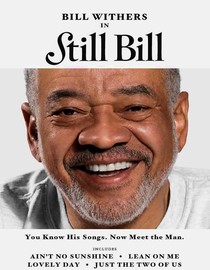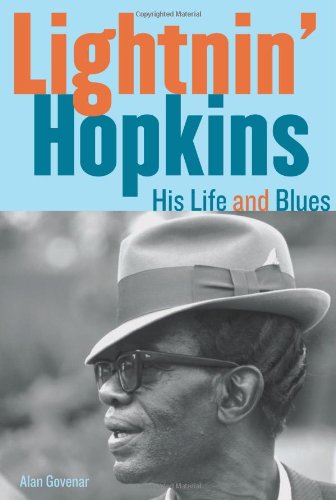DVDS
Videos by American Songwriter
STONES IN EXILE
(EAGLE ROCK DVD)
[Rating: 3.5 stars]
Heard the one about how the Rolling Stones recorded one of their most celebrated albums, the big double one, in a shabby, cramped French basement with abysmal sound and even air, having just left England because of confiscatory taxes and various legal issues? Likely you have, but the situation, conditions, and nature of the sessions involved will stick with you more on seeing this documentary produced by Mssrs. Jagger, Richards and Watts themselves. Jagger and Watts revisit, today, and comment on the French Villa where the free-form, find-it-as-you-play recording and general mayhem associated with it ensued. Much is made here, finally, of the rough documentary footage, some of it previously seen here and there, if not officially released, shot by photographer Robert Frank at the time, on the site and follow-on tour. Given Exile on Main Street’s sometimes forgotten lukewarm initial reception, the questions raised in ’71-‘72 sometimes related to the unexpectedly dense sound mix and sometimes to the songs, “eventually celebrated” might be the apt description of the LP. The DVD, with extensive interviews and cut-by-cut depiction of the album making, simply assumes that you’ll find the subject historic, and gets on with showing how it happened.
STILL BILL
(DVD or HD/Phone download at: stillbillthemovie.com)
[Rating: 5 Stars]
I know; I know; I know. Bill Withers is recalled by some simply as a charming soul singer of the seventies who scored a couple of monster hits with “Lean on Me” and “Ain’t No Sunshine,” and by others as a model alternative performer, purveyor of a form of jazzy, acoustic soul balladry that others have been able to reference ever since. This revelatory little film takes us right to the man, his charm (undiluted by the decades), his singularities and peculiarities, and his utter disregard for show business machinery. He’s a star who felt like walking away from celebrity, even from performing, and so, for a generation till the time of this film’s completion, he just did. The inter-cutting and inter-relation of three ages of Bill– the hot young media celebrity, the older retired family man who has a recording studio he hasn’t quite bothered to learn how to use, and the youngest Bill, an African-American kid in an often bleak yet beautiful West Virginia mining town, hamstrung by severe stuttering—is extraordinarily effective.
Co-director/producers Damani Baker and Alex Vlack worked over ten years to bring home this intimate, telling portrait, an under-the-radar mini-masterpiece in a documentary genre that so rarely transcends clichés at all. Note that the filmmakers have passed on traditional DVD label distribution with this award winner, which is available in multiple physical and digital formats on the film’s own website.
BOOKS
LIGHTNIN’ HOPKINS: HIS LIFE AND BLUES
By Alan Govenar
(CHICAGO REVIEW PRESS)
[Rating: 4 stars]
Sam Hopkins, first called “Lightnin’” in 1946 by a producer who (temporarily) paired him with a partner dubbed “Thunder,” was among the most enigmatic, and charismatic, of the successful retro-but-modern blues stars of his era. Muddy Waters and John Lee Hooker were his most obvious hit-making hard blues competitors. Today, he’s one of the most frequently cited as a musical influence— often, it seems, by Texas singer-songwriters otherwise not working the blues territory much. Author Alan Govenar, a Texas music specialist, proves the right person to try to fill in many of the blanks about the life and music of a practitioner who was inclined to record a lot, incorporate mythmaking versions of his experiences into what he recorded, but minimize the details about who he was and picked his appearance spots selectively.
Extralegal activities had added to his vagueness as to biographical detail, we learn here. And unsurprisingly, the tendency of legions of white record producers to make of his music what they wanted it—and Hopkins himself—to be (most often, more folk-like than the urban R&B club electric guitar slinger he was) made it convenient for him to assume roles or keep his own counsel. The research is extensive; the depiction of the blues scene in which Hopkins became a star is particularly well detailed—and it pulls no punches as to the behavior of the would be handlers of a maverick who essentially couldn’t be handled at all. Govenar’s writing style is serviceable, and the musical criticism is astute enough to help cut through the thicket of the many recorded versions of Hopkins’ songs in search of the gold. There are times when we get more of the “and then he recorded” sort of thing than is continually fascinating, but the volume as a whole pays valuable attention to a subject long demanding the careful, involved treatment.
LIKE ME: CONFESSIONS OF A HEARTLAND COUNTRY SINGER
By Chely Wright
(PANTHEON)
[Rating: 3.5 stars]
You will likely have heard already about the central public revelation in singer-songwriter Chely Wright’s gutsy, often touching memoir: that she’s gay, and though born into that “heartland” culture that led her to attempt to fight it, has essentially understood that since childhood, and has spent considerable time in her twenty-plus year country music career, things being what they are in the field, expending incalculable energy working to hide it. The “confessions” in the title concern the relationships, personal and professional, compromised in real ways by the closeting, by attempts to separate her career and her personal life, and the youthful moments where, in fear or pain, she betrayed or tried to pray her way out of whom she knew she was. As author of “Single White Female” and dozens of other songs, Ms. Wright’s talents as a storytelling songwriter have long been established; her eye and ear for detail and ability to find the right phrase show in the stories she relates here, too.
There is, naturally, a considerable amount of career story in Like Me in addition to the personal story, and involving insider music business. From the standpoint of songwriters coming to this memoir for that side of things, more on how the personal struggle affected her writing and performing would likely have been welcome. Chely’s written successful songs that were “in the mode” genre jobs, and also much more personal stuff, but what it was like, precisely, to write something like “Hard to Be a Husband, Hard to be a Wife,” with Brad Paisley, when he didn’t know the implications of the theme from her side? The mechanics of making the art but avoiding the conversation are touched on, but not much analyzed. Commentary like that may still be coming from this author; no small part of the book’s gustiness resides in her frankness about her continuing efforts to see how all of this fits together and where she “fits in.”











Leave a Reply
Only members can comment. Become a member. Already a member? Log in.